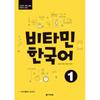★ Welcome to Seoul Books. ★
- All products are genuine.
- It's shipped from South Korea.
[Title]
We Do Not Part - 2024 Nobel Prize in Literature Winner, Han Kang's Novel
[Detail]
332 pages
133*200mm
460g
ISBN : 9788954682152
[Information]
"Five years after winning the Booker Prize, the current status of Han Kang's novels"
Apart from the position of a reader who loves Han Kang, I also waited for novelist Han Kang's new work every year as a bookstore employee. Imagining the physicality of the 'Snow Trilogy' that will be published by combining <While a Snow Flower Melts>, which won the Hwang Sun-won Literary Award, and <Farewell>, which won the Kim Yu-jeong Literary Award. The story <Not Farewell>, which was originally supposed to be the last story of the trilogy (it is also meaningful that the second story of the trilogy was 'Farewell'), finally found readers as an independent story. Readers who love Han Kang's novels will be able to imagine his affectionate and cautious tone just by reading the first sentence, and it is a poetic landscape of a snowstorm.
Novelist Kyung-ha (of course, this character is a fictional character) wrote a novel about Gwangju in May. "Having decided to write about massacre and torture, he thought that he would be able to shake off the pain someday and easily erase all traces"" (p. 23), but even after finishing the novel, he could not let it go for a long time. Gyeong-ha has a friend, In-seon, who has documented the ""women who passed through history" (p. 34) in Manchuria and Vietnam. In-seon, who became a carpenter in her hometown of Jeju, contacts Gyeong-ha after a long time when she is looking for her after suffering an injury that resulted in the loss of two fingers. And at In-seon's request, Gyeong-ha braves the Jeju snowstorm and visits the Jeju of 1948, where "hundreds of remains are buried in pits without context or explanation" (p. 167) in the story of Jeong-sim.
Just as readers who read the harsh sentences of 'The Boy Comes' in Gwangju in May experienced deep wounds as if they were living in that era, Han Kang said at the publication commemorative press conference that the author also seems unable to return to the time before he wrote "that novel." How should we accept that the girl in 1948, who learned that snowflakes falling on the face of a dead person do not melt, lived a long life after that? The story of what happened in Jeju on April 3, 1948, written by Han Kang, or the story of the extreme love that makes us live. I hope that this novel, which save





























